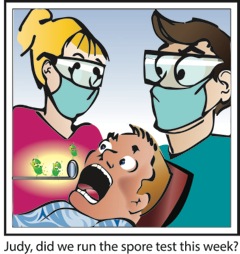Dental employers have a legal obligation to provide a safe workplace. Under requirements enforced by…
Communicating with Hearing-Impaired Patients
We have received calls in the past from dentists asking if they are required to pay for a sign-language interpreter for hearing-impaired patients. The short answer to the question is – it depends. The Americans with Disabilities Act requires dentists to provide care for patients with disabilities and to establish ways to communicate so they can understand. There are a variety of ways to communicate with a deaf or hearing-impaired patient. For example, dentists can use written notes, pictures or models to discuss the patient’s condition and recommended treatment. Office computers are also useful in conversing with a hearing-impaired patient. Some hearing-impaired individuals are very adept at reading lips and prefer to speak face to face. Additionally, family members may be available to interpret for you. The best approach may be to let the patient indicate the form of communication he/she prefers. If hiring an interpreter is necessary, the dentist must pay for the interpreter and may not pass the charge along to the patient.
Since 1992, OSHA Review, Inc. has provided dental professionals with comprehensive programs to support regulatory compliance and infection control. We are a registered dental continuing education provider in the state of California, specializing in Dental Practice Act, infection control, and OSHA training.


